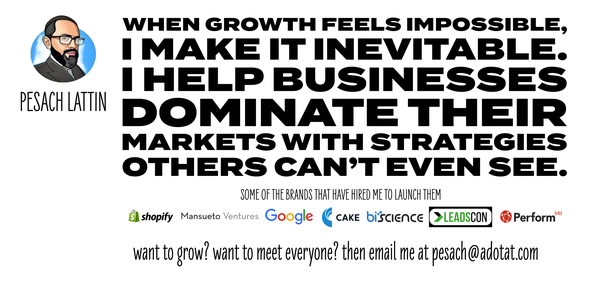Drew Stein: Master of the Hadron Helm,
Now Steering Experian’s Adtech Ship
There’s now a saying in adtech: when PR people reach out to you with coy smiles and cryptic non-announcements, you’re looking at one of three possibilities: someone’s getting bought, someone’s buying, or someone’s heading to jail.
Thankfully, in this case, it’s the middle option.
Experian just snapped up
Audigent, the data activation wunderkind that’s been cozying up to identity solutions like a tech bro to his wearable tracker.
A Deal That’s Been Brewing Longer Than Your Cold Brew
Let’s not pretend this announcement caught anyone off guard. Experian and Audigent have been playing footsie under the conference table since 2022, and now, like a rom-com couple finally realizing their meant-to-be status, they’ve sealed the deal. It’s not a shocking plot twist; it’s more like the inevitable third act where the lovers kiss in the rain. Experian, already hoarding enough consumer and business data to make Orwell blush, decided Audigent’s boutique of
first-party publisher data and inventory networks was the missing piece in its adtech empire.
This union isn’t just a marriage of convenience—it’s a strategic power-up. Think of it as strapping a jetpack to a high-powered AI telescope and aiming it at the cosmos. Experian already has
the data equivalent of the Mariana Trench; Audigent brings the tools to dive deep and find treasure. Together, they’ll turn “We think you might like this” into “We know exactly what you’ll buy, when you’ll buy it, and what kind of ad will make you click.”
Drew Stein: Captain of the Ship "Cookieless"
Audigent’s CEO, Drew Stein, isn’t going anywhere, which is good news
because someone needs to keep the ship from crashing into privacy icebergs. Stein’s brainchild, the Hadron ID, is a privacy-forward identity framework that’s as critical in today’s regulatory minefield as sunscreen is on a trip to the equator. If Experian’s the seasoned ship captain with a treasure map of data, Stein is the navigator whispering, “Maybe don’t sail into that storm marked GDPR.”
But here’s where it gets interesting: Kimberly Gilberti, Experian’s general manager of marketing services, assures us that Audigent will remain a “stand-alone brand.” Translation: “We won’t mess with the cool kids’ vibe... yet.” It’s a promise that usually lasts until someone in corporate decides they need more synergy, which is code for “we’ll rebrand it in six months and
pretend it was always this way.” For now, though, Stein gets to keep his captain’s hat and continue steering Audigent’s cookieless ambitions.
Turbocharging Ad Targeting: Fewer Excuses, More Precision
Experian’s already infamous for knowing more about you than your therapist. Now, with Audigent’s data arsenal, they’re poised to eliminate the last vestiges of “broad
targeting” excuses. Remember those awkwardly irrelevant ads for dog food when you’re a cat person?
Consider them extinct.
This duo is about to make ad targeting so sharp it could slice through skepticism like a sushi chef’s blade.
It’s not just about raw data—it’s about actionable intelligence. Audigent’s treasure trove of first-party
publisher data and sell-side distribution channels gives Experian the precision tools it needs to build advertising campaigns that don’t just guess—they predict. It’s like swapping a game of darts for laser-guided missiles. Sure, it sounds terrifying, but hey, at least the ads will finally be relevant.
The Fine Print of Stand-Alone Promises
Gilberti’s reassurance about
Audigent remaining a stand-alone brand feels like a prenup—necessary but not exactly romantic. It’s a common line in these acquisitions: “We value the brand’s unique identity.” Translation? “We won’t touch it... until it’s convenient to do so.” Experian’s history suggests they’re not above a little rebranding or restructuring when the spreadsheets demand it.
Still, keeping Stein and his team in place is a smart move. If you’re buying a Ferrari, you don’t immediately swap out the engine for parts from your old Chevy. Experian knows Audigent’s team is the secret sauce, and for now, they’re content to let it simmer.
The Bigger Picture: From Oceans of Data to Targeted Thunderstorms
This acquisition isn’t just about making Experian richer in data (although, let’s be honest, that’s a big part of it). It’s about transforming how advertising operates in a privacy-centric world. Audigent’s expertise in cookieless solutions is the linchpin, offering a way forward as cookies crumble under the weight of consumer demands and regulatory scrutiny.
Experian and Audigent aren’t just hoarding data; they’re building a system to wield it with surgical precision. It’s the difference between flooding the market with ads and sending a perfectly timed thunderstorm to water a single plant. Sure, it’s a little dystopian—but hey, so is everything else in adtech.
What’s the Big Deal?
This acquisition is like peanut butter meeting jelly. Audigent claims access to 4 billion first-party IDs and over 13.3 billion device graphs. Experian, meanwhile, totes around 3.6 petabytes of global consumer and business data, including info on 235 million U.S. consumers. Add these numbers together, and you’ve got enough data to make even the most jaded marketer salivate.
Experian spokespersons, channeling their inner diplomat, told Digiday: “We view Audigent as a natural extension of our existing marketing data and identity capabilities.” Translation? “We’re building a data empire, and this is our shiny new province.”
Privacy? Sure, We’ve Heard of It
California’s strict data laws? GDPR? Pfft. Experian insists it’s fully compliant with global privacy standards, though critics might point out that “fully compliant” is a term as flexible as a yoga instructor in Bali.
When asked about the legal and ethical implications of hoarding this much data, Gilberti offered the standard-issue corporate shrug: “Privacy is among our highest priorities.” You can almost hear the collective sigh of regulators gearing up for audits.
A Marriage of Scale and Opportunity
Let’s not sugarcoat it—this deal isn’t some grand love story; it’s a gritty survival play. Audigent had climbed as high as it could in the adtech jungle, its impressive arsenal of first-party data and sell-side savvy hitting the proverbial ceiling. Without a boost, it was stuck in that awkward growth phase where a company’s ambition outpaces its resources. Enter Experian, the lumbering titan of consumer and business data, looking
for a way to polish its image and stay relevant in an increasingly cookieless world.
Together, they’re attempting something ambitious: turning Experian into more than just the brand you grudgingly interact with during mortgage applications. This is about Experian grabbing a seat at the
cool kids’ table in adtech while Audigent gets the resources and reach to break through its plateau.
Call it a power move, call it a partnership of necessity—either way, it’s a strategic play for vertical integration that puts Experian on the map as more than the poster child for
“data broker.”
Curation’s Moment in the Spotlight
Lou Paskalis, the guy who’s probably quoted more often in trade magazines than he’s caffeinated, nailed it with his take: “Curation is a service to marketers when it’s transparent and allows the marketer to opt-in/opt-out of individual domains.”
Translation? If Experian handles this right, it could finally make curation the rock star of adtech.
For too long, curation has been the
underappreciated middle child of the industry—necessary, but not exactly glamorous. It’s the mechanism that lets marketers focus their dollars on quality over quantity, but only if it’s done with transparency.
With Audigent’s expertise in sell-side curation and Experian’s vast
reservoirs of data, the duo could redefine what curation means. Think of it as turning a foggy telescope into a precision laser—cutting out the clutter and delivering hyper-targeted results that make every ad dollar count.
But here’s the catch: the success of this integration hinges on
Experian’s ability to stay in its lane. Marketers don’t want a heavy-handed approach that feels like Big Brother gone corporate; they want tools that empower, not overreach.
The Big Question Mark: Can Experian Make It Work?
And now for the elephant in the boardroom: can Experian pull this off without tripping over its own bureaucracy? As Matthew Newcomb so aptly pointed
out, “Tech and consumer financial data don’t necessarily play nicely together.” It’s a sentiment that should be printed on every Experian PowerPoint slide moving forward.
On paper, this merger looks great—like peanut butter and jelly, or at least peanut butter and Nutella. Yummmy. But
in practice? It’s more like trying to combine a Formula 1 race car (Audigent) with a cargo ship (Experian). Sure, both are vehicles, but they’re built for entirely different purposes. Audigent’s culture is likely fast-paced, scrappy, and innovation-driven, while Experian’s is steeped in compliance, risk aversion, and slow-moving decision-making.
Will Experian give Audigent the autonomy to thrive, or will it smother the startup’s ingenuity with endless red tape and quarterly review meetings? If history is any guide, the latter is a real risk. Too many acquisitions start with promises of independence and end with the acquired company becoming little more than a logo on a PowerPoint deck.
The Stakes Are High
This isn’t just a test for Experian and Audigent; it’s a litmus test for the entire adtech ecosystem. If a company as big as Experian can successfully integrate a nimble player like Audigent without crushing its spirit, it sets a precedent for how traditional data giants can evolve in the cookieless era.
On the flip side, if this marriage devolves into a classic tale of corporate overreach, it’ll serve as a cautionary tale for future M&A in adtech. The stakes couldn’t be higher, and the industry is watching closely.
Experian and Audigent are trying to walk a tightrope over a pit of regulatory challenges, cultural clashes, and sky-high expectations. Whether they make it to the other side or tumble into the abyss remains to be seen. For now, let’s just say the popcorn’s ready, and the show is about to begin.
Looking Ahead
This acquisition is a
statement of confidence—not just in Audigent, but in the broader health of the adtech ecosystem. As Stein himself told AdExchanger earlier this year: “The old way of having a deterministic identifier that gets hosted in a matching table is going to lose fidelity.”
In other
words, the future is cookieless, and Experian just bet big on being ready for it.
So, what’s next? Expect more M&A activity in 2025 as companies scramble to adapt to shifting privacy regulations and new adtech paradigms.
And keep an eye on Experian and Audigent—if they can pull this off, it’ll be a masterclass in data-driven evolution.
If
not, well, I mean, there’s always the third option.
CHAT ABOUT THIS ON
LINKEDIN














